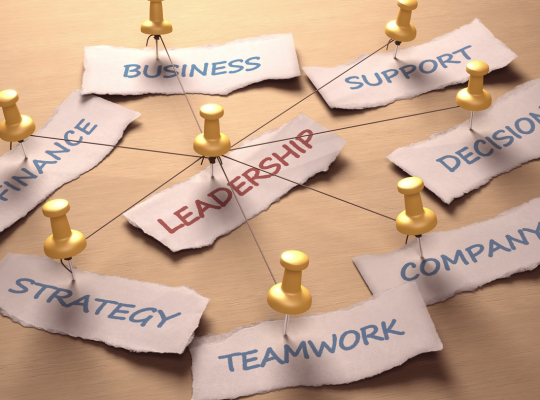The role of a business leader could not be more vital and challenging in today’s rapidly changing business environment. Leadership competence forms the core or nucleus of any business organization, paving its way through complexities and uncertainties. The paper discusses the basic skills a modern corporate leader needs to possess, the ways of developing them, and strategies for enhancing one’s leadership abilities.
Understanding Leadership Skills
Leadership skills refer to those competencies and attributes that allow one person to guide, inspire, and influence others within a team toward common goals. The following set represents the full range of competencies within this skill: from strategic thinking to emotional intelligence, these are very important skills for proper management and organization.
Types of Leadership Skills
1. Strategic Thinking
It means the ability to forecast the big picture and, therefore, plan for the future. It involves analyzing market trends to anticipate challenges and opportunities for growth. Such leaders may strategically align the efforts of their teams with the company’s long-term objectives.
2. Communication skills
Communication is the foundation of leadership—the ability to clearly express ideas, actively listen, and engage in open dialogue. Leaders foster good communication by building trust, resolving conflicts, and keeping everyone focused on the organization’s vision and goals.
3. Emotional Intelligence
Emotional intelligence is the state whereby a person is aware of their feelings and those of others around them. Leaders high in EI can understand their team, develop close relations, and foster a great working atmosphere. This trait is essential for motivating workers and dealing with difficult conditions at work.
4. Decision-Making
Decisive leaders can weigh options, envision the outcomes of their choices, and make the right decision quickly. Effective decision-making requires a delicate balancing act between intuition and analytical thinking, allowing leaders to surmount some of the most challenging situations and move an organization ahead.
5. Adaptability
The business environment is always changing, and the only way to survive is to be adaptable. This means being open to new ideas, flexible in approach, and resilient in the event of failure. Such leaders can easily switch strategies and guide their teams through transitions.
Building Leadership Skills
The process of building key leadership skills is continuous and involves self-reflection, learning, and practice. Here are strategies to develop these fundamental abilities:
1. Seek Feedback
You will learn more about the leadership style and your scope for improvement from the regular feedback given by peers, mentors, or your team members. You shall grow as a leader, understanding your strengths and weaknesses with constructive criticism.
2. Continuous Learning
Success in leadership demands equal personal and professional development investments. These could be attending workshops, taking courses, reading, or simply keeping updated about your industry. Learning from other leaders’ experiences will empower you with practical insights.
3. Practice Self-Reflection
Self-reflection is the assessment of one’s actions, decisions, and results or outcomes. Reflecting on one’s leadership experiences enables one to point out what went well and what did not. This will allow one to better understand one’s leadership style and the impression it makes on people.
4. Embracing New Challenges
The more you step out of your comfort zone to take on new challenges, the faster your growth as a leader will be. These experiences could include leading a new project, handling a different team, or dealing with a complex issue. Diverse experiences develop resilience and adaptability.
Traits of an Influential Business Leader
Business leaders differ in their unique combinations of key leadership skills and traits. Some of the principal characteristics are:
1. Visionary Thinking
A visionary leader can see beyond what is happening at the moment and frame a desired future. This ability to see the future and communicate it is important in pushing innovation and growth. It motivates teams to work, keeping a clear vision in front of them and urging them towards it.
2. Integrity:
Integrity means being honest, ethical, and transparent in all actions. Leaders with integrity engender a sense of trust and respect within their ranks and promote a culture of accountability and reliability. Integrity is what drives a great leader toward long-term success.
3. Inspirational
Inspirational leaders inspire their teams by motivating and boosting them. They set good examples, are passionate about their jobs, and appreciate the efforts of others. In that respect, inspirational leadership represents a positively engaging work environment.
Developing Leadership Skills
Developing key leadership skills requires deliberate and dedicated effort. Following are some practical steps that have been demonstrated to improve your leadership skills:
1. Build a Strong Network
Networking across the key leadership skills and professional fraternity can be a way of seeking encouragement, mentorship, and collaboration. Having a solid professional network exposes one to diverse ways of thinking and ideas that enrich your leadership approach.
2. Problem-Solving Skills
One key feature associated with effective leaders is their excellent problem-solving skills. They practice solving various complex problems, study different solutions, and learn from the results. Therefore, this ability is important in navigating challenges and making effective decisions.
3. Growth Mindset
Growth mindset refers to the belief that an individual cultivates abilities and intelligence through efforts and learning. Practice this type of mindset by embracing challenges, persisting, and seeing what can be learned from failures.
Leadership Strengths
The more you understand and work with your key leadership skills and strengths, the more capable you’ll be as a leader. Of all the strengths of effective leaders, here are some common ones:
1. Empathy
Empathy enables a leader to realize and share their emotions with team members at a personal level. It builds the strength of relationships, trust, and collaborative spirit within a team.
2. Resilience
The resilient leader will have the capacity to absorb adversities, learn from them, and recover quickly. This strength is crucial for sustaining focus and morale in difficult times.
3. Innovation
Innovative leaders truly welcome creativity and listen to new ideas. They create an environment where innovation can foster and blossom into continuous improvement and, eventually, a sustainable competitive advantage.
How to Improve Leadership Skills
Improving key leadership skills takes time, effort, and dedication. The following are some of the tips that is used to enhance your leadership skills:
1. Set Goals
Setting measurable, achievable, specific, relevant, and time-bound goals for your leadership development will give you clear directions and drive to work harder in improving yourself.
2. Learn from Others
Observe and learn from leaders with much more experience inside and outside your organization. Seek mentors and advice, and apply these lessons to your leadership practice.
3. Take Responsibility
Be responsible for your actions and decisions. Accountability will increase your credibility and trust with your team and further strengthen your role as a leader.
How to Improve Leadership Skills
Better leadership is brought about by dedication and sincere efforts. Here are some ways to make you a better leader:
1. Developing Emotional Intelligence
Understanding and managing emotions and those of others improves communication, conflict resolution, and team dynamics.
2. Foster Inclusivity
Inclusive leaders respect others’ points of view and create an environment where everyone is heard and respected. Inclusion fosters innovation and results in team performance.
3. Encourage Collaboration
Support a collaborative culture through teamwork and open communication. Collaboration empowers collective intelligence and enhances problem-solving ability.
Leadership in Business
Business key leadership skills is more than managing people; it is about moving the organization towards its goals and doing so in such a way that the environment in the workplace remains positive and productive. Influential leaders in business:
1. Drive Vision and Strategy
Business leaders set the vision and strategic direction for their organizations. They align resources and efforts to long-term objectives.
2. Foster a Positive Culture
Leaders shape an organization’s culture by demonstrating behaviors and values that they want their juniors to emulate. An organization that exudes a positive culture of employment helps drive success by attracting and retaining top talent.
3. Innovate and Adapt
Successful business leaders Today embrace innovation and adaptability. They encourage a culture of relentless improvement and do not hesitate to change strategies when market conditions change.
Conclusion
Successful corporate leaders require many diverse skills in the face of problems and leading their entities toward success. Among these are strategic thinking, effective communication, emotional intelligence, decision-making, and adaptability, which set one apart as a leader. These are the skills that can be established and enhanced only through continuous learning, raising awareness over themselves, and practice. By embracing these strategies, aspiring leaders can develop their abilities and lead their organizations to new heights.







